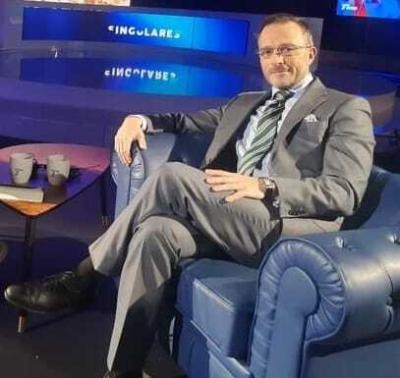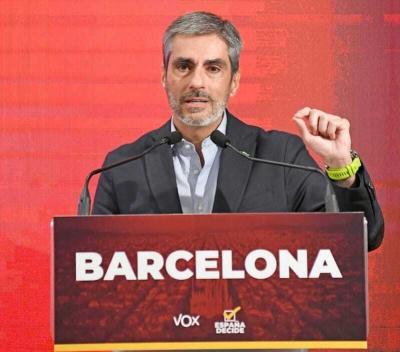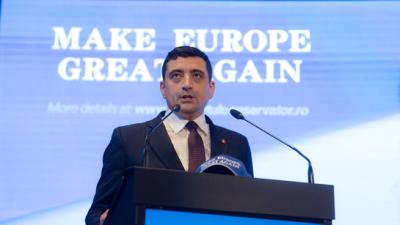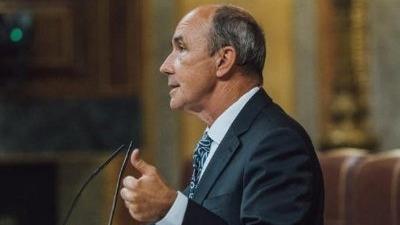Interview with Rubén Herrero de Castro, PhD in Political Science and Sociology from the Complutense University of Madrid and Professor of International Relations at the Faculty of Political Science at the same university. He is a researcher at the Franklin Institute of the University of Alcalá de Henares and the Research Unit on Security and International Cooperation. Author of several books, including The Invented Reality. Perceptions and the Foreign Policy Decision-Making Process (2007) and John F. Kennedy and Vietnam. The Fall of Camelot (2011). Rubén Herrero is a regular contributor to various radio and television programmes.
Alvaro Peñas: After fifteen months of war, Russia has not managed to break Ukraine. Did Putin believe his own propaganda? Did Russia want to become the Soviet Union again?
Rubén Herrero de Castro: The Ukrainian war is not a question of whether Russia believes itself to be the Soviet Union or the Russian Empire. The question is whether Russia is a superpower - and it is not. It is another thing if it just wanted to behave like a superpower, and a superpower should indeed have behaved as Russia did. Today, Russia is a mid-sized power thanks to its nuclear weapons and energy resources. No more, no less. And such a power cannot dream that there is still a Soviet space within reach. Russia is not in a position to determine which country joins NATO or the EU, nor to determine the security perimeter of NATO or the US in Europe. As Thucydides said in the Peloponnesian War: “The strong do what they have the power to do, and the weak accept what they must accept”. Russia should have integrated into international society, built a narrative, and not invaded a sovereign country under pretexts such as the security perimeter of the US, NATO and the EU, or the argument of “denazification”. After more than a year, the situation is disastrous. The so-called second largest army in the world has a budget of 65 billion dollars, Russia is what it is because of its nuclear weapons.
How much is Spain’s military budget?
Counting all the associated items, between 12-15 billion dollars. Russia, with all the items, around 75-80. The US has a budget of 800 billion dollars. They don’t play in the same league, even Saudi Arabia has a bigger budget.
And, in the end, we have a poorly led and prepared army, with outdated weaponry and no combat morale, which is incapable of achieving its objectives: they have not limited the NATO perimeter, which has increased with the addition of Finland and the forthcoming entry of Sweden. Neither have they achieved “denazification”, which is a fantasy. When it was pointed out to Russian foreign minister Sergey Lavrov that Zelensky is a Jew, his response was: “like Hitler”. Russian leaders live out of touch with reality.
What do you think will happen in the war?
I believe in a Ukrainian victory. Ukraine is receiving arms and funding from the US and all its allies, and has very good soldiers whose morale is sky high. Why are we generous with Ukraine? Because Ukraine is fighting our war, because Russia cannot win. Russia cannot win because of logistics and because such an invasion against a sovereign country cannot be allowed: this would mean the end of Europe. No one wants to be next, and that is why everyone has united against Russia. Even the EU, for the first time in its history, has earmarked 5 billion euros for military spending. This is a meagre sum, but still a very clear signal. In this context, it is logical that Zelenski is not willing to negotiate with Russia.
China has offered to mediate a negotiation and the Ukrainian response is to demand return to the 1991 borders.
Obvious. And this could have a domino effect in the region. Next, Georgia will claim South Ossetia, and Chechnya its independence. Even Japan has claimed the Kuril Islands, which were occupied by the USSR after World War II in flagrant violation of the 1875 Treaty of St. Petersburg, which stated that the islands were Japanese. And how is Zelenski going to give in to an army of alcoholics, convicts and criminals like the Wagners, to an ill-equipped and undersupplied army, without international support, without a strategic plan… They even have to send tanks from the 1960s, the ones they sent to Prague or Budapest.
Don’t you think this is because they failed to consider a protracted war in Ukraine?
Yes, Russia is playing one card at a time: Ukraine falls in a month and has no Western support, but the Ukrainians hold out for a month, two months, three… and the US and its allies are turning to Ukraine because it leaves Russia where they want it, stuck in the Donbas. Plus the huge number of casualties is wearing down the Russian army because there is no ample demographic replacement like in the past. Russia leads the world in abortions and divorces, despite many Russians wanting to see Putin as a champion of patriotism, and sooner or later it is going to lose this war. The only thing that could complicate Russia’s defeat is if the US were to stop helping Ukraine, but this is not going to happen.
Donald Trump has recently declared that if he is elected president the war will be over in a day, and some conservatives are even calling for abandoning Ukraine. Could this really happen or is this just electoral populism? What effect would it have for the US to abandon Ukraine?
I am convinced that if Donald Trump had continued as US president, Russia would never have invaded Ukraine. Why? Because Trump is a deterrent and if someone wanted to move recklessly on the stage, Trump would say: “think very carefully about what you are going to do, because I will respond massively and disproportionately”. We saw that with North Korea, Iran and so on. If Trump wins the election he will not withdraw from Ukraine, but will try to convince Putin to withdraw from Ukraine by offering him some way out. Not even a “peace with honour” like Nixon’s in Vietnam, or handing over territories he has not been able to defend, but something more symbolic that would allow Russia to build a narrative other than military defeat.
Trump would not leave Ukraine in the lurch, he would not allow such pitiful images as what was seen in Afghanistan under Biden. Right now, US national interests lie with Zelenski’s victory.
Should we be concerned about occasional Russian threats to use nuclear weapons?
In international relations there is something called rational decision-making theory. Someone thinks that Russia is going to launch a tactical nuclear weapon, on populated or unpopulated territory, across the Donbas. It makes no tactical, strategic, logical, rational or political sense, and NATO has already warned that it would conventionally annihilate the Russian army deployed in Ukraine. On the other hand, such a decision would completely isolate Russia, because no country in the world, not even China, would be able to support Putin.
What do you think of Spain's role in the war in Ukraine?
In Spain we have the misfortune of having a government that is really a destructive, diabolical and socialist sect acting against Spain and Spaniards and, of course, against Europeans and also Ukrainians, and against everything that is beautiful, good and decent. Our government is very much in favour of empty acts of contest, and it is in favour of Ukraine, but the real help is very limited, as we have seen with the material and weapons sent. The little that was sent was either not of high quality or, based on a do-gooder view of the conflict, made up of helmets and first aid kits. The Leopards promised are necessary for our national defence, and those that are expendable are in a deplorable state. What is promised cannot be given, just as is the case in domestic politics. True, there is a huge groundswell of solidarity and humanitarian aid in civil society, but a government must know that wars are won with firepower. Read Clausewitz, who says what engagement in war must look like. You have to commit resources to demoralise your adversary, this is Clausewitz's total war: the will to win with the necessary resources. Wars are won with logistics, firepower and political will, not by sending in colourful medical kits.
It should also be borne in mind that in Spain, as in other European countries, the state of the armed forces leaves much to be desired.
Of our actual budget for the armed forces, some 10 billion, half goes on salaries. What do you do with 5 billion? This is the cost of a single F-35. We need to rethink defence and security. The thinking of Hans Morgenthau, the father of classical realism, who argued that foreign policy is a question of power and national interests, is now back in vogue. If you look after national interests, you will not engage in adventurous foreign policies. It is all about power, security, national interests, capabilities and firepower. Morgenthau was right.
This war has proved that the Polish conservative government was right, and we have seen the change of government in Italy, Sweden and Finland. Could this war mark a real change of course in Europe in the face of progressive dystopias?
Yes. On the one hand, the historic right is in complete decline because it has lost its values and has taken on all the progressive mindsets, and on the other hand, the socialists have also begun their decline. Right now the debate is between supporting Agenda 2030 and the woke movement or defending patriotism. And the war in Ukraine has shown that values such as patriotism or virility are values of the first order, and these values correspond to this new patriotic right wing that is coming into power in more and more countries.
Read also
Gonzalo de Oro: "If VOX does not defend the Catalans, no one else will"
Interview with Gonzalo de Oro, VOX councillor in Barcelona City Council and coordinator of the VOX municipal group.
Álvaro Peñas
Make Europe Great Again. The international conservative conference in Romania and the return to normality
The last weekend of April we were in Bucharest to attend the MEGA - Make Europe Great Again event held in the Romanian parliament.
Álvaro Peñas
José Papparelli
Francisco José Contreras: “The renewal of the West is the historic task that the New Right must take on”
Francisco José Contreras is Professor of Philosophy of Law at the University of Seville and was a deputy for VOX during the last legislature (November 2019-July 2023).














Comments (0)